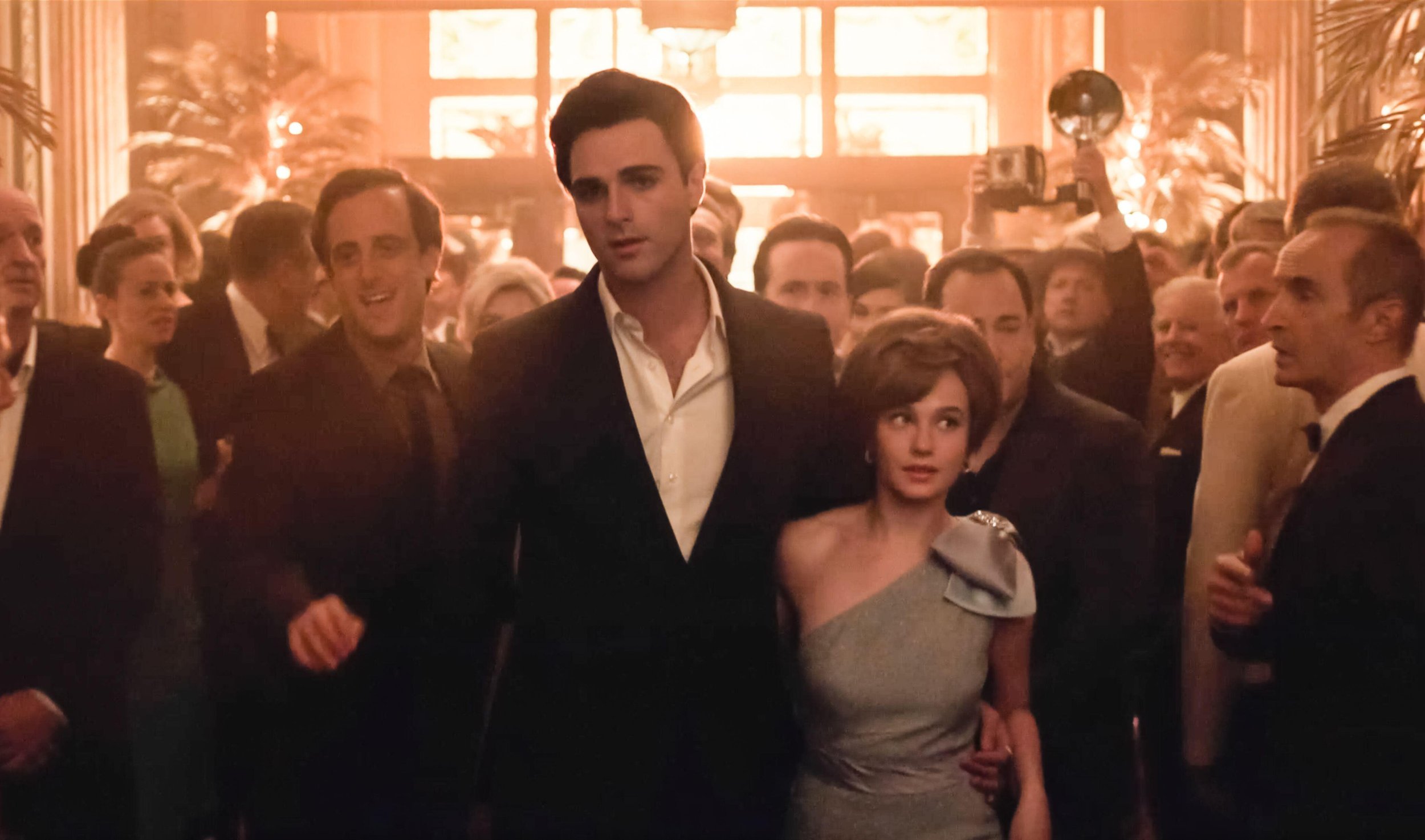PRISCILLA
Directing: B
Acting: A-
Writing: B-
Cinematography: B
Editing: B-
When I left the theater after seeing Priscilla, my moviegoing companion addressed the elephant in the theater: “How many movies can Sofia Coppola make about bored white ladies?”
It made me laugh. It’s also a legitimately valid question. And Priscilla takes that notion to the extreme, an odd sort of accomplishment in that it’s incredibly well made, excellently acted, well shot, and is also incredibly slow. Coppola has a long history of dealing in cinematic subtleties, but virtually the entirety of Priscilla feels like an extended prologue to Priscilla Presley’s life after Elvis—none of which do we get to see.
It’s a bit fascinating to have Baz Luhrmann’s Elvis come out just last year, and Sofia Coppola’s Priscilla come out this year. Elvis had far too much going on; Priscilla doesn’t have enough going on. Evlis features a depiction of Priscilla but makes no mention of the fact that they met when she was fourteen and he was twenty-four; Priscilla is not only all about that fact, but subtly depicts the ways in which Elvis groomed both her and her parents. Elvis featured a truly unfotunate Tom Hanks performance as “The Colonel” who was depicted as the villain who controlled his life; Priscilla features Colonel Tom Parker only as someone Elvis speaks to occasionally over the phone, and shows Elvis himself as kind of an asshole.
There are some additional narrative choices in Priscilla that are, let’s say, compelling topics for discussion. Once Priscilla is of legal age and living with Elvis, she’s frustrated by his lack of sexual interest in her. Suddenly she’s having a baby, and then another—evidently they had sex at least twice. What are they, the protestants from Monty Python’s The Meaning of Life?
This is an odd idea to layer onto Elvis’s clear grooming of an underage girl, only to have eventual affairs with costars in the movies he finds increasingly unsatisfying to be a part of. I can’t quite make sense of Elvis Presley’s sexuality as depicted in Priscilla. Add to that another layer: Jacob Elordi is is so gorgeous, and so perfectly cast as Elvis (dare I say, even better than Austin Butler in Elvis), it’s almost unbearable. And yet, Priscilla has absolutely nothing to say about his scandalously sexy live performances, the signature swinging of his hips. Indeed, it has nothing to say about his excess of fame, although at least it acknowledges it—when it comes to wealth, forget it. Coppola seems interested only in the story of a young woman who is seduced by a star and then systematically robbed of all her agency.
And Coppola takes her dear sweet time doing it. Here’s another oddity of Priscilla: it’s quite recognizably a Sofia Coppola film, and yet it might be the slowest film she’s ever made. I spent a lot of time wondering if anything of substance was actually going to happen onscreen. Are we meant to be as bored as Priscilla is? Honestly her life, while far from ideal, was clearly a lot more exciting than this movie is.
There are plenty of people who are expressing genuine appreciation for this film, and I can’t say I fault them for it, per se. The performances are exemplary, and 25-year-old Cailee Spaeny delivers a solid, nuanced delivery as the title character. The world it depicts feels lived in, if leaving a lot of things about the Presleys’ lives unexamined. Clearly a great deal of talent went into this movie. That’s maybe what’s the most disappointing about it, how it adds up to less than the sum of its parts. Would this film be getting the same level of acclaim without the Coppola name attached to it? I really wonder.
The untold story of a bored starwife.
Overall: B-

